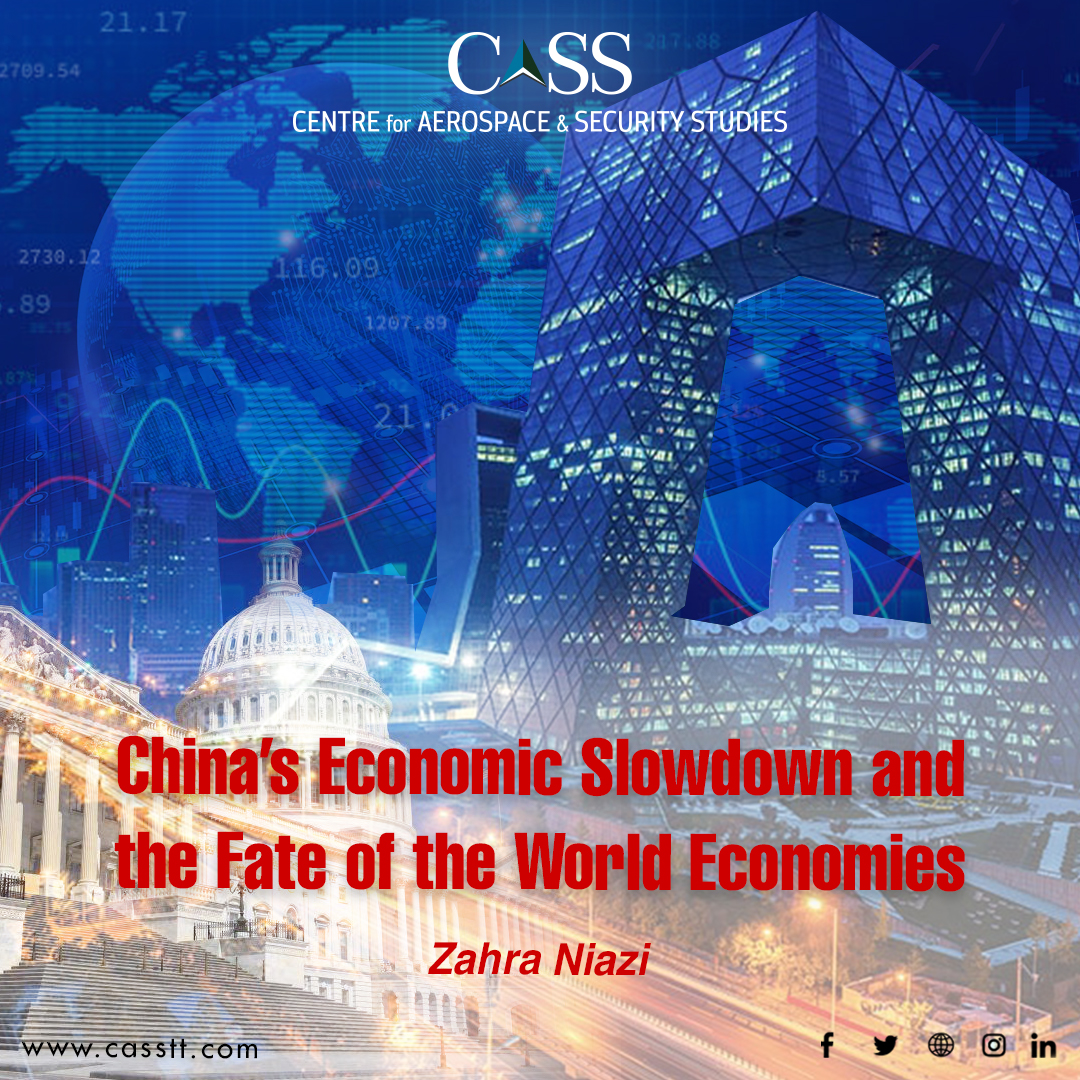As economies throughout the world continue to grapple with the challenges brought about by the repercussions of the Russia-Ukraine war, global interest rate shocks, long-term ramifications of COVID-19, and natural disasters, China’s economic slowdown has sparked additional fears. Given the country’s deep integration with the world economy, any significant internal financial crisis is bound to send shockwaves to the rest of the world, particularly to developing countries and emerging market economies.
Over the past 40 years, China witnessed remarkable economic growth. Following Beijing’s landmark reforms involving liberalising trade and Foreign Direct Investment and bringing market incentives to the agricultural and manufacturing sectors, the country recorded a yearly average real growth of 9% and 13% during several peak years. However, in recent times, China’s period of growth appears to be on a downward trajectory. This economic slowdown has resulted from a combination of several factors – the majority of which are home-grown.
While the rest of the world gradually returned to normalcy, the Chinese government has been the last one that continues to maintain a strict anti-COVID regime, which relies on a zero-COVID strategy aimed at detecting and eliminating virus cases before they spread. This has taken a massive toll on the country’s economy, leading to business closures, reducing investor confidence and consumer consumption, and using up resources. Moreover, the recent real estate crisis, which was also partly augmented by the zero-COVID policy, added fuel to fire as the property sector accounts for 24% of the country’s GDP. The crisis was driven by the Chinese government’s clampdown on borrowing by developers beginning in August 2020, which left the debt-laden developers without cash to complete the construction of pre-sold properties and led many mortgage-holders to boycott their mortgages.
Additionally, in recent times, major Chinese tech companies have been reporting massive losses, attributed to COVID controls, the introduction of tough regulatory measures, and the US-China tech war. The latter has led major Chinese technology firms to be placed on the export blacklist by the US and restricted Beijing’s access to manufacturing tools and chips used to make semiconductors. Thus, it is no surprise that the World Bank has forecasted the Chinese GDP to grow by 2.8% in 2022, while the International Monetary Fund estimated it to grow by 3.2%. For months, economists and scholars have warned that a slow-motion financial crisis is unfolding in the country.
Given China’s level of integration with the world economy, it would be folly to assume that the impact of any financial crisis in the People’s Republic would remain limited to the Chinese mainland only. Research shows that in the scenario of an adverse financial crisis, advanced economies outside the US would suffer a GDP decline of approximately 1.5 percentage points, while emerging markets as a group would suffer a drop of 2-3 percentage points. Of the emerging markets, the hardest hit economies would be those highly dependent on exporting to China. In particular, the GDP decline in the commodity-exporting emerging markets would amount to 3 percentage points in two years. On the other hand, in the scenario of a severe financial crisis similar to the American housing bubble burst of 2006, the emerging market economies altogether would see their GDP decline by approximately six percentage points. The impact would be akin to the effects of the Global Financial Crisis of 2007. Arguably, GDP decline could be even higher under the present circumstances as countries struggle to recover from a series of crises and the global economy stands at a critical juncture with the fears of recession looming.
Hence, it would not be an overstatement to contend that the fate of the world economies today remains partly dependent on Beijing’s ability to bring its economic slowdown to a halt, and eventually reverse its course. In recent days, some relaxation of the COVID restrictions and introduction of a rescue package for the property sector, involving measures such as credit support for over-leveraged property developers, is a welcome development and would provide some respite to the distressed economy. However, any meaningful relaxation of the zero-COVID policy does not appear in sight and will continue to weigh heavily on the economy. Moreover, tech regulation remains in place, and the US-China tech war continues unabated.
Policymakers in Beijing and Washington need to realise that their policies have implications for the world’s eight billion people – all worthy of respect and consideration as the long-forgotten moral ideal of cosmopolitanism, asserts. Hence, any domestic and international policies they adopt should be cognizant of global implications.
Zahra Niazi is a Research Assistant at the Centre for Aerospace & Security Studies (CASS), Islamabad, Pakistan. The article was subsequently published in The News International. She can be reached at [email protected].





